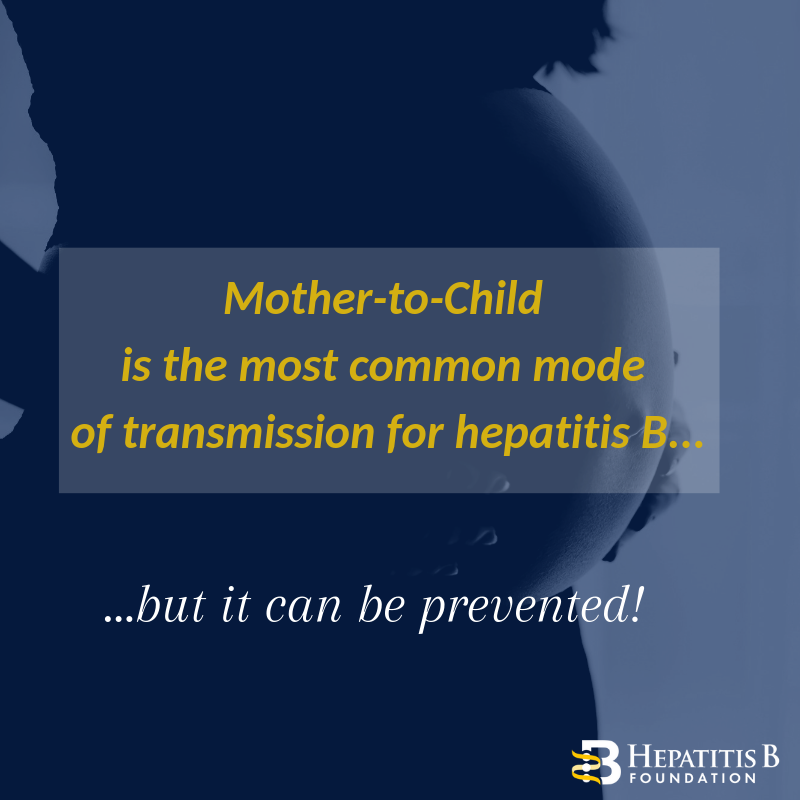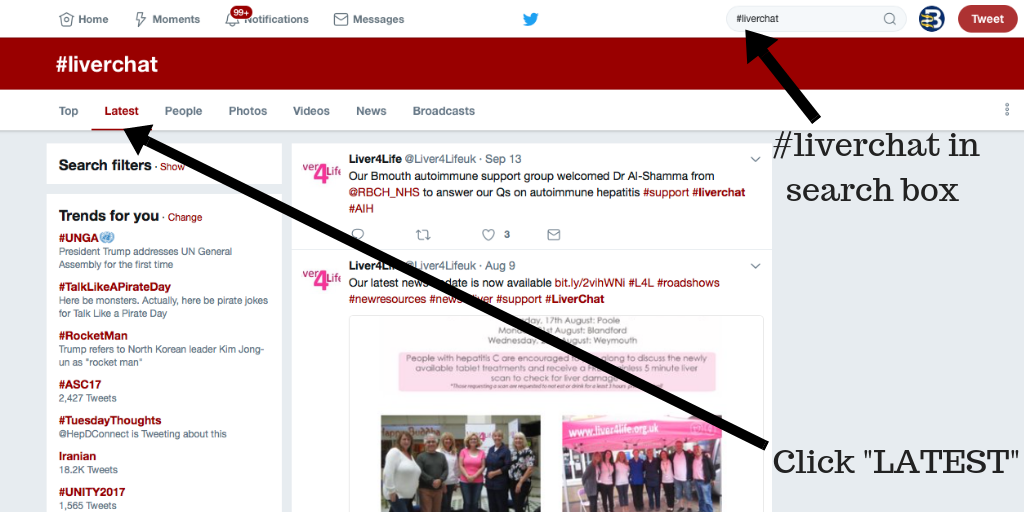
With five different types of viral hepatitis, it can be difficult to understand the differences between them. Some forms of hepatitis get more attention than others, but it is still important to know how they are transmitted, what they do, and the steps that you can take to protect yourself and your liver!
This is part two in a three-part series.
What is Hepatitis?
Hepatitis means “inflammation of the liver”. A liver can become inflamed for many reasons, such as too much alcohol, physical injury, autoimmune response, or a reaction to bacteria or a virus. The five most common hepatitis viruses are A, B, C, D, and E. Some hepatitis viruses can lead to fibrosis, cirrhosis, liver failure, or even liver cancer. Damage to the liver reduces its ability to function and makes it harder for your body to filter out toxins.
Hepatitis A vs. Hepatitis B
While hepatitis A and B both impact the liver, the two viruses differ greatly from one another. Hepatitis B is a blood-borne pathogen; its primary mode of transmission is through direct blood-to-blood contact with an infected person. In contrast, hepatitis A can be spread by fecal-oral transmission or by consuming food or water that has been contaminated. It is important to note that a person cannot contract hepatitis B through casual interactions such as holding hands, sharing a meal with, or eating foods prepared by someone who is infected. There is no need to keep plates and utensils separate. However, hepatitis A can be spread through food that is prepared by an infected person. Hepatitis A is primarily caused by poor sanitation and personal hygiene. Poor sanitation and hygiene can be the result of a lack of essential infrastructure like waste management or clean water systems. It can also result from a lack of education.
Hepatitis A is an acute infection; the virus typically stays in the body for a short amount of time and most people make a full recovery after several weeks. Recently, the United States has seen a rise in hepatitis A infections. The rise is partially attributed to a growing homeless population and increases in injection drug use. You can track hepatitis A outbreaks in the United States by using this map.
Unlike hepatitis B, which rarely has symptoms, people infected with hepatitis A generally develop symptoms four weeks after exposure. However, children under the age of 6 often do not show any symptoms. Oftentimes, an infected adult will experience nausea, vomiting, fever, dark urine, or abdominal pain. Older children and adults with hepatitis A will typically experience jaundice, according to the Centers for Disease Control and Prevention (CDC). Once a person makes a recovery, they cannot be reinfected. Their body develops protective antibodies that will recognize the virus and fight it off if it enters their system again. Hepatitis A rarely causes lasting liver damage, but in a small percentage of individuals, it can cause acute liver failure called fulminant hepatitis. Some people with hepatitis A feel ill enough that they need to be hospitalized to receive fluids and supportive care.
 On the other hand, hepatitis B begins as a short-term infection, but in some cases, it can progress into a chronic, or life-long, infection. Chronic hepatitis B is the world’s leading cause of liver cancer and can lead to serious liver diseases such as cirrhosis or liver cancer. Most adults who become infected with hepatitis B develop an acute infection and will make a full recovery in approximately six months. However, about 90% of infected newborns and up to 50% of young children will develop a life-long infection. This is because hepatitis B can be transmitted from an infected mother to her baby due to exposure to her blood. Many infected mothers do not know they are infected and therefore cannot work with their physicians to take the necessary precautions to prevent transmission. It is extremely important for all pregnant women to get tested for the hepatitis B – if they are infected, transmission to their baby can be prevented!
On the other hand, hepatitis B begins as a short-term infection, but in some cases, it can progress into a chronic, or life-long, infection. Chronic hepatitis B is the world’s leading cause of liver cancer and can lead to serious liver diseases such as cirrhosis or liver cancer. Most adults who become infected with hepatitis B develop an acute infection and will make a full recovery in approximately six months. However, about 90% of infected newborns and up to 50% of young children will develop a life-long infection. This is because hepatitis B can be transmitted from an infected mother to her baby due to exposure to her blood. Many infected mothers do not know they are infected and therefore cannot work with their physicians to take the necessary precautions to prevent transmission. It is extremely important for all pregnant women to get tested for the hepatitis B – if they are infected, transmission to their baby can be prevented!
There are vaccines to protect people against both hepatitis A and hepatitis B. If you are unvaccinated and believe that you have been exposed to hepatitis A, you should contact your doctor or local health department to get tested. If you were exposed by consuming contaminated food, the health department can work with you to identify the source of exposure and prevent a potential outbreak. Depending on the situation and when you were exposed, your doctor may administer postexposure prophylaxis (PEP) to help prevent the infection or lessen its impact. For hepatitis A, PEP is given in the form of one dose of the vaccine or immune goblin.
For unvaccinated individuals, PEP is also recommended after a possible exposure to hepatitis B and is usually given as a dose of the vaccine. In certain cases, a physician will recommend that a patient receive both the vaccine and a dose of hepatitis B immune globulin (HBIG) for additional protection. As recommended by the CDC, all infants born to hepatitis B surface antigen positive mothers (HBsAg positive) should receive both a dose of the hepatitis B vaccine and a dose of HBIG within 12 hours of birth in order to prevent transmission. As timing is crucial in the prevention of disease, a healthcare provider should be notified as quickly as possible after a potential exposure.
Prevention
Hepatitis A and B vaccines can protect you for life! The hepatitis A vaccine is given in 2-doses over the span of six months and the hepatitis B vaccine is given in 3-doses over the course of six months; there is even a 2-dose hepatitis B vaccine now available in the U.S.! You can also ask your doctor about getting the combination vaccine for hepatitis A and B together, which will reduce the number of shots you need.
The CDC recommends that people living with chronic hepatitis B also get vaccinated for hepatitis A to protect themselves against another liver infection and potential liver damage. While the hepatitis A vaccine is routinely given to children in the United States, other countries have different vaccine recommendations, so check with your doctor to see if you have been vaccinated. Hepatitis A can also be prevented by good hygiene practices like washing your hands with soap and hot water after using the bathroom or before preparing food, but the best form of prevention is always vaccination!





 The Hepatitis B Foundation is thrilled to announce the addition of a new clinical trials search tool to our website! People around the world can now easily search for clinical trial opportunities on the Hepatitis B Foundation website. Created by Antidote – a company that designs technologies to link patients with scientific opportunities – the new tool filters through all of the trials listed in the U.S. National Library of Medicine’s database of private and publicly funded studies. Searching for clinical trials can be time-consuming and confusing to navigate, but this resource eases the process by finding the best trials for you based upon a series of questions.
The Hepatitis B Foundation is thrilled to announce the addition of a new clinical trials search tool to our website! People around the world can now easily search for clinical trial opportunities on the Hepatitis B Foundation website. Created by Antidote – a company that designs technologies to link patients with scientific opportunities – the new tool filters through all of the trials listed in the U.S. National Library of Medicine’s database of private and publicly funded studies. Searching for clinical trials can be time-consuming and confusing to navigate, but this resource eases the process by finding the best trials for you based upon a series of questions.
 Both issues can impair the liver’s ability to function and filter out toxins that enter the body. They can also increase a person’s risk of developing liver cancer. Recently,
Both issues can impair the liver’s ability to function and filter out toxins that enter the body. They can also increase a person’s risk of developing liver cancer. Recently, 
 especially if you are uncertain about how they will react. However, it is extremely important! Even if you are using condoms, it is necessary to let your partner know your status before becoming intimate. Once you tell them, it will be a huge relief!
especially if you are uncertain about how they will react. However, it is extremely important! Even if you are using condoms, it is necessary to let your partner know your status before becoming intimate. Once you tell them, it will be a huge relief!  show love than by being supportive? If your partner is living with hepatitis B,
show love than by being supportive? If your partner is living with hepatitis B,
 On the other hand, hepatitis B begins as a short-term infection, but in some cases, it can progress into a chronic, or life-long, infection. Chronic hepatitis B is the world’s leading cause of liver cancer and can lead to serious liver diseases such as cirrhosis or liver cancer. Most adults who become infected with hepatitis B develop an acute infection and will make a full recovery in approximately six months. However, about 90% of infected newborns and up to 50% of young children will develop a life-long infection. This is because hepatitis B can be transmitted from an infected mother to her baby due to exposure to her blood. Many infected mothers do not know they are infected and therefore cannot work with their physicians to take the necessary
On the other hand, hepatitis B begins as a short-term infection, but in some cases, it can progress into a chronic, or life-long, infection. Chronic hepatitis B is the world’s leading cause of liver cancer and can lead to serious liver diseases such as cirrhosis or liver cancer. Most adults who become infected with hepatitis B develop an acute infection and will make a full recovery in approximately six months. However, about 90% of infected newborns and up to 50% of young children will develop a life-long infection. This is because hepatitis B can be transmitted from an infected mother to her baby due to exposure to her blood. Many infected mothers do not know they are infected and therefore cannot work with their physicians to take the necessary  October is Liver Cancer Awareness Month. Often we neglect to think about the link between hepatitis and liver cancer. Tuesday, Oct. 16, representatives from
October is Liver Cancer Awareness Month. Often we neglect to think about the link between hepatitis and liver cancer. Tuesday, Oct. 16, representatives from 